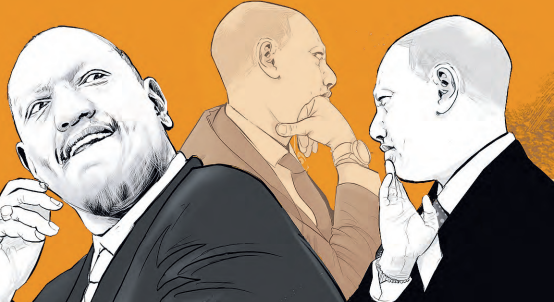
Keen observers will note that President William Ruto’s most recent public remarks have a curious note of introspection to them.
He seems increasingly conscious of how history may judge his tenure and the portrait coming into view appears unsettling to him.
For example, at a graduation ceremony for 574 forest officers at the National Youth Service College in Gilgil, Nakuru county, on Monday, Ruto’s words took on an almost plaintive tone as he appealed to Kenyans to have faith in the country and dismissed what he labelled as harmful misinformation.
“All of us as people of Kenya, it is time that we believe in this great country that God has given us,” he said.
“It is time that we stopped the negativity, it is time to stop believing in the fake news and propaganda that is hurting our nation,” the President urged.
The remarks mark a shift in Ruto’s normally aspirational rhetoric, suggesting a leader increasingly aware of the narrative shaping around his administration and possibly worried about how much of it might stick.
However, Ruto is missing the root of the distrust currently swirling around the nation.
Kenyans aren’t short on faith in their country, they’re short on faith in the man steering it.
If Ruto wants to know why there’s such a pervasive scepticism about his leadership, he need only look in the mirror.
The mistrust surrounding Ruto’s capacity to lead and keep his promises has reared its head in usual places, including at an innocuous press conference held by Patrice Motsepe, the president of the Confederation of African Football, during his visit in September.
In a particularly telling moment when Motsepe voiced his trust in Ruto to deliver on his promise to have Kenya ready to co-host the 2027 Africa Cup of Nations alongside Uganda and Tanzania by calling him “a man of his word,” his statement was met with spontaneous laughter from the assembled journalist.
The reaction spoke volumes.
How did we get here?
The answer can be found in an age-old piece of wisdom from ancient China.
“Watch your habits; they become your character. Watch your character; it becomes your destiny,” wrote Lao Tzu, the philosopher behind the Tao Te Ching, Taoism’s foundational text.
Sage advice.
It’s precisely why the President’s reputation for making promises he won’t keep has become a national punchline and has put his legacy in serious peril.
It’s hard to build unity around your vision for the country when overt displays of mistrust emerge even in neutral settings.
Despite his vaunted political acumen, Ruto seems completely unable to inspire Kenyans in a meaningful way during this critical period.
His vision of a better future for the country seems to rest entirely on Kenya ascending to first-world status through more tax compliance.
His many speeches on the subject suggest a worldview in which the only meaningful contribution citizens can make to national success is through their wallets.
Meanwhile, the reality Kenyans see is a revolving door of leaders and wheeler-dealers getting fat on the public purse and a Director of Public Prosecutions who seems all too eager to shelve corruption cases involving the well-connected.
Even more alarming is the state of civil rights under Ruto’s administration despite his many pre-election assurances to abide by the robust protections in the constitution.
The recent abduction and release, without charge, of activist Boniface Mwangi and the detention of many other critics on spurious charges hint at a leader either indifferent to civil liberties or one in power but in charge.
Some observers have gone so far as to label these detention sites, whose horrors have been well documented by the Kitengela three, as the “Ruto’s torture chambers.”
Despite his feet having been put to the fire during the Gen Z protests, Ruto still doesn’t seem to understand that in the times we are living in, a few clicks on social media can turn seemingly minor actions by the state machinery into global headlines, making it challenging for any leader to outrun the stain of human rights abuses.
Kenya deserves leaders who not only speak of greatness but demonstrate it in their actions.
Character casts a long shadow.
Until Ruto realises that, the
“negativity” he decries will only grow, and, eventually,
it may come to define his place in history.




![[PHOTOS]: Ruto meets security chiefs at State House, Nairobi](/_next/image?url=https%3A%2F%2Fcdn.radioafrica.digital%2Fimage%2F2025%2F06%2Fc4c42fa7-00eb-43a9-81a8-aff44a446021.jpg&w=3840&q=100)




![[PHOTOS]: Promotion of Army chiefs at State House](/_next/image?url=https%3A%2F%2Fcdn.radioafrica.digital%2Fimage%2F2025%2F06%2Fc189c693-1b07-42a4-b814-0471bd65f443.jpeg&w=3840&q=100)
